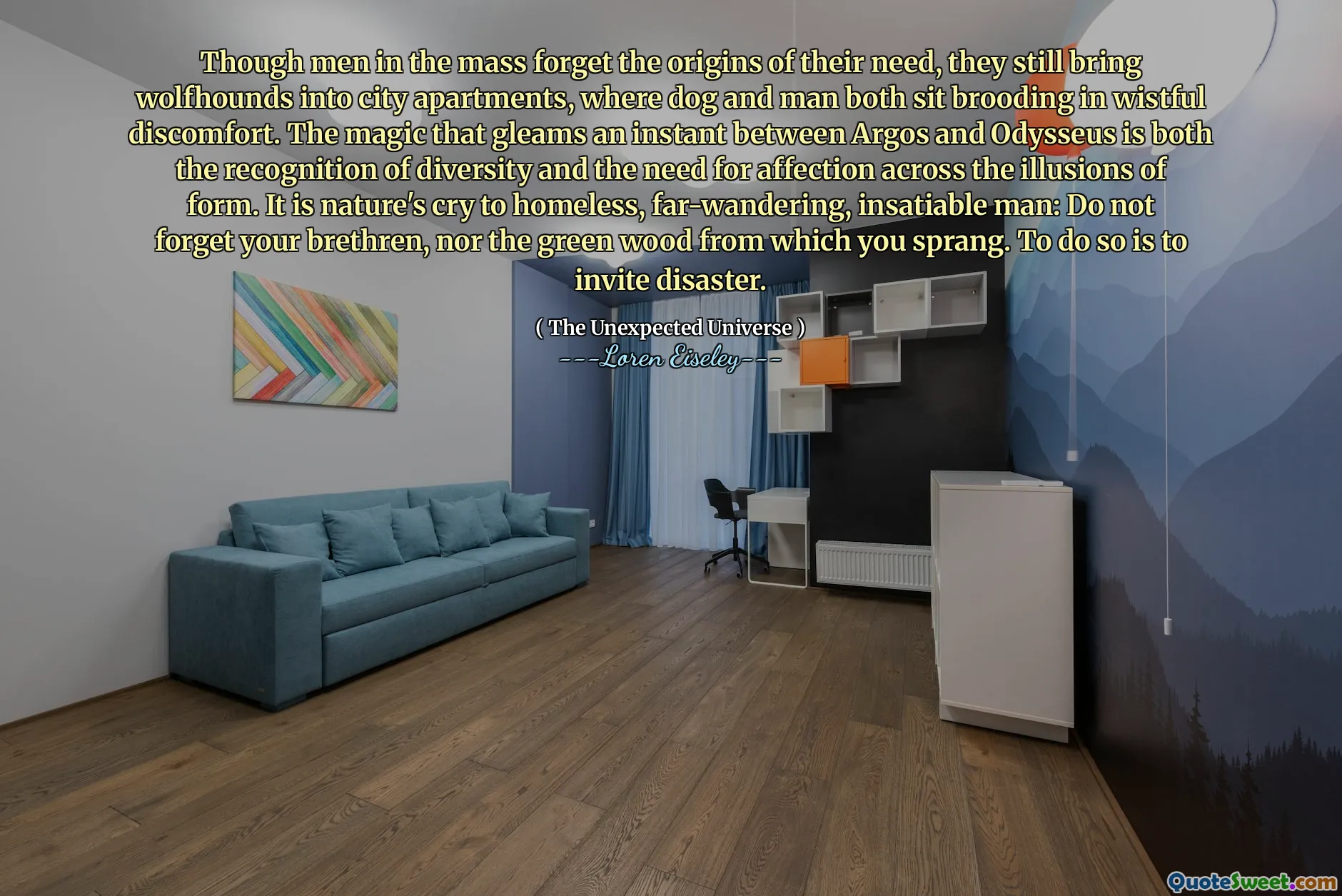
Though men in the mass forget the origins of their need, they still bring wolfhounds into city apartments, where dog and man both sit brooding in wistful discomfort. The magic that gleams an instant between Argos and Odysseus is both the recognition of diversity and the need for affection across the illusions of form. It is nature's cry to homeless, far-wandering, insatiable man: Do not forget your brethren, nor the green wood from which you sprang. To do so is to invite disaster.
This evocative quote from Loren Eiseley's "The Unexpected Universe" offers a profound meditation on the alienation of modern man and the deep-rooted need to remain connected to one's origins and the natural world. The image of wolfhounds—symbols of wildness and primal instinct—being confined within the artificial walls of city apartments provides a striking metaphor for how humans have distanced themselves from the environments that once sustained them. Both dog and man exist in "wistful discomfort," underscoring a shared longing for an authentic existence that defies urban confinement.
Eiseley invokes the mythic relationship of Argos and Odysseus, a timeless emblem of loyalty, recognition, and unconditional affection that transcends the physical alterations time imposes. This fleeting glimpse of "magic" is a testament to the human capacity to perceive and honor diversity while acknowledging the universal need for genuine connection, love, and acceptance beyond superficial appearances.
Moreover, the passage serves as a cautionary call for humanity to remain conscious of our origins—not just biologically, but relationally and spiritually. The "green wood from which you sprang" is symbolic of a primordial unity with nature and fellow creatures, an interconnectedness that modern lifestyles often obscure or neglect. Ignoring this bond risks disaster, suggesting that the erasure of our ties to the natural world and to each other results not simply in individual alienation, but in broader ecological and societal decline.
In contemplating this quote, one is reminded of the critical importance of balance: between progress and tradition, isolation and community, civilization and wilderness. Eiseley warns against the illusions we weave to distance ourselves from uncomfortable truths about our dependence on the natural world and our social brethren. It is a plea to remember that despite technological advances and shifts in living conditions, fundamental needs—affection, recognition, belonging—remain constant.
Ultimately, this passage inspires a reflection on how modernity shapes identity and belonging. The melancholy shared by man and dog evokes a universal yearning that persists beneath the surface of contemporary life. It implores us to rekindle our relationship with nature and one another, lest we lose not just ourselves but the very foundations that sustain us.






